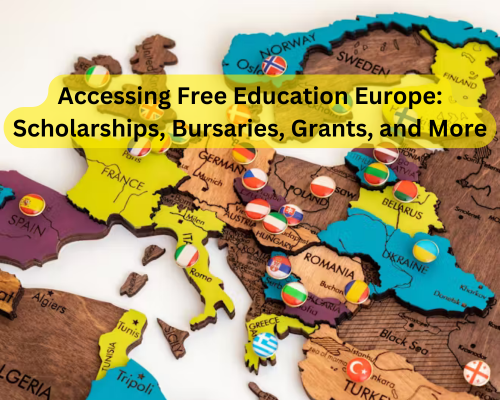
Europe is a leading choice for students worldwide, offering top-tier education, vibrant cultural experiences, and various financial aids that make studying abroad more feasible. Whether you’re pursuing undergraduate, graduate, or research studies, numerous scholarships, bursaries, and grants can significantly lower, or even completely cover, your tuition costs. This guide will help you explore the options available for accessing free or nearly tuition free education.
Why Choose Europe?
Europe is renowned for its academic rigor, diverse program offerings, and courses taught in multiple languages. Several European nations are especially well-known for providing free or low-cost education to both EU and non-EU students.
Germany: Public institutions generally do not charge tuition for undergraduate programs, with students only needing to pay a modest administrative fee per semester.
Norway: Public institutions in Norway do not require tuition fees from international students, though they must manage their living expenses.
Finland: Although non-EU/EEA students may encounter tuition fees, many Finnish institutions offer scholarships that can fully cover these expenses.
Scholarships: The Key to Affordable Education
Scholarships in Europe are a crucial way to minimize educational costs and are often awarded based on academic performance, leadership abilities, or specific skills.
Erasmus+ Program: A European Union program offering scholarships for students to study abroad within Europe, covering tuition, travel, and living expenses, with millions of students benefiting over time.
DAAD Scholarships: Provided by Germany, these scholarships in Europe cater to international students across different academic levels, covering tuition, living costs, health insurance, and travel expenses.
Swedish Institute Scholarships: Available to international students from developing nations, these scholarships cover tuition, living expenses, and other related costs.
Chevening Scholarships: Funded by the UK government, these scholarships are granted to exceptional emerging leaders to undertake a master’s degree in the UK, covering tuition, travel, and a monthly allowance.
Bursaries: Financial Aid for Those in Need
Bursaries are typically granted based on financial necessity, designed to assist students who might not have the financial resources for higher education. They can help with living expenses, books, and other educational costs.
General Need-Based Bursaries: Many European institutions and governments offer bursaries to help students from lower-income backgrounds cover basic living expenses during their studies.
Region-Specific Bursaries: Some countries provide bursaries targeted at students from particular regions or with specific financial difficulties.
Grants: Support for Research and Projects
Grants represent another form of financial support, generally provided to fund specific research projects or academic endeavors. Unlike loans, grants do not require repayment.
Marie Sk?odowska-Curie Actions: As part of the Horizon Europe program, these grants support doctoral candidates and researchers, offering funds for research projects and encouraging cross-border mobility.
Excellence Scholarship Programs: Various nations offer scholarships in Europe that attract top international students to pursue advanced studies, with grants covering tuition, living expenses, and other related costs.
Maximizing Financial Support
Students often combine different types of financial aid to completely cover their educational expenses. By applying for multiple scholarships, bursaries, and grants, you can enhance your chances of receiving enough funding.
Success Strategies
Begin Early: Start searching for scholarships, bursaries, and grants well before you plan to start your studies, as deadlines are often months before the academic year begins.
Meet Eligibility Criteria: Ensure you meet the eligibility requirements for each financial aid option before applying.
Prepare Strong Applications: Take time to craft persuasive personal statements, secure strong recommendations, and ensure all required documents are in order.
Stay Organized: Track deadlines and required documents to avoid missing out on any opportunities.
Seek Advice: Use online resources and academic advisors to navigate the application process and find the best financial aid options for your situation.
Securing financial aid can make a European education accessible and affordable, or even free. With a range of scholarships, bursaries, and grants available, students can achieve their academic ambitions in Europe without the burden of high tuition fees. By exploring these opportunities and preparing carefully, you can fully benefit from European education and set the foundation for a successful future.